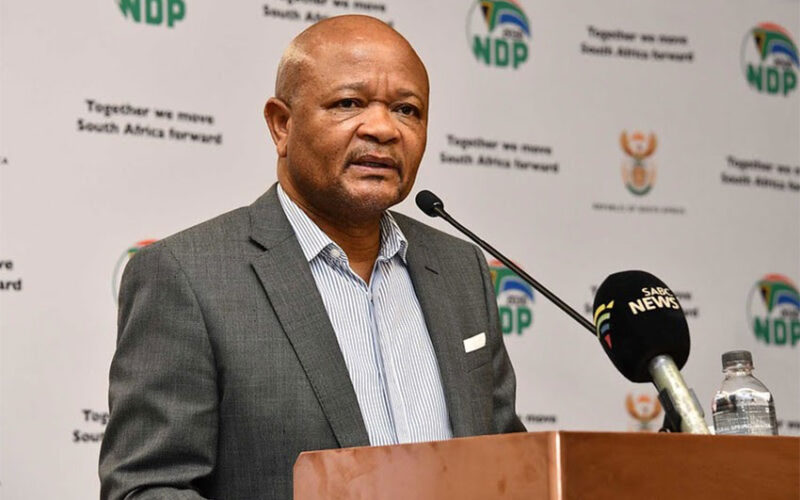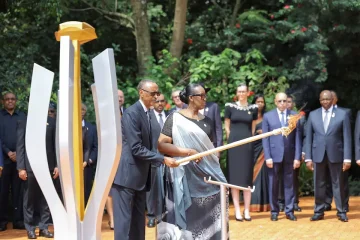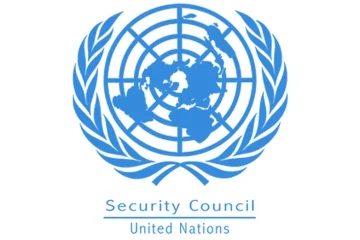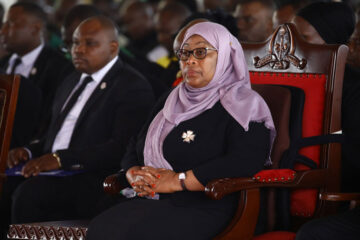SENZO MCHUNU
THE year 2003 marked a historic turn on the African continent as Member States of the African Union (AU) voluntarily acceded to a mutually agreed self-monitoring mechanism called the African Peer Review Mechanism (APRM). This mechanism is aimed at fostering good governance in the continent through systematic peer learning and self-assessment.
The APRM was adopted by African Heads of State and Government as a systematic peer learning and self-assessment mechanism originating from the NEPAD foundational document, “The Declaration on Democracy, Political, Economic and Corporate Governance” which was adopted in Durban, South Africa in July 2002.
The primary purpose of the APRM is to foster the adoption of policies, standards and practices that lead to political stability, high economic growth, sustainable development and accelerated sub-regional and continental economic integration through sharing of experiences and reinforcement of successful and best practice, including identifying deficiencies and assessing the needs for capacity building.
On 9 March 2021, we celebrated 18 years of this historic moment on our continent and reflect on the impact the APRM has on promoting good governance across governments of Member States of the African Union.
There are currently 40 Members States who voluntarily acceded to by African Union’s self-monitoring mechanism and South Africa is one of them.
Twenty-three countries have undergone the APRM Country review process. Five have opened themselves up again for a second-generation review and four have completed targeted reviews on specific governance challenges.
Every review exercise carried out under the authority of the Mechanism must be technically competent, credible and free of political manipulation. These stipulations together constitute the core guiding principles of the Mechanism.
The APRM is a tool for sharing experiences, reinforcing best practices, identifying deficiencies, and assessing capacity-building needs to foster policies, standards and practices that lead to political stability, high economic growth, sustainable development and accelerated sub-regional and continental economic integration.
Member countries use the APRM to self–monitor all aspects of their governance and socio-economic development. African Union (AU) stakeholders participate in the self-assessment of all branches of government – executive, legislative and judicial – as well as the private sector, civil society and the media. The APRM Review Process gives member states a space for national dialogue on governance and socio-economic indicators and an opportunity to build consensus on the way forward.
The APR Forum of Heads of State and Government adopted the 2016 – 2020 Strategic Plan and the APRM Statute at the 25th Summit of the APR Forum held in Nairobi, Kenya. These are the key foundational documents anchoring the revitalization of the APRM.
The mandate of the APRM is to ensure that policies and practices of participating Member States conform to the agreed political, economic and corporate governance values, codes and standards contained in the African Union Declaration on Democracy, Political, Economic and Corporate Governance.
The four areas of APRM review
The APRM assessment mechanism using Four Thematic areas:
- Democratic and Political Governance – some of the key objectives in this thematic area include prevention and reduction of intra- and inter-country conflicts, Constitutional democracy, including periodic political competition and opportunity for choice, the rule of law, a Bill of Rights and the supremacy of the constitution are firmly established in the constitution. Also, this thematic area promotes and protects economic, social, cultural, civil and political rights as enshrined in all African and international human rights instruments.
- Economic Governance and Management – Good economic governance, including transparency in financial management, is an essential pre-requisite for promoting economic growth and reducing poverty.
Mindful of this, this thematic area pursues five key objectives, namely: promotion of macro-economic policies that support sustainable development Implement transparent, predictable and credible government economic policies, promotion of sound public finance management, fight corruption and money laundering, and finally, accelerate regional integration by participating in the harmonization of monetary, trade and investment policies amongst the participating states.
- Socio-Economic Governance – key socio-economic thrusts such as promoting gender equality, allocation of appropriate funds to the social sector, as well as promoting new partnerships between governments, the private sector and civil society, are also essential in this area.
- Corporate Governance – the APRM definition of Corporate Governance involves all aspects that govern a company’s relations with shareholders and other stakeholders. The APRM’s Objectives, Standards, Criteria and Indicators document defines Corporate Governance as concerned with the ethical principles, values and practices that facilitate holding the balance between economic and social goals, and between individual and communal goals.
APRM in South Africa
South Africa is one of the founding Member States of the APRM and was among the first countries to be peer-reviewed in 2005 and fully participates in the activities of the APRM.
South Africa has produced three (3) progress reports based on the recommendations of the first peer review. The last one was tabled in 2014.
President Cyril Ramaphosa is a member and current Chair of the APR Forum while Minister for the Public Service and Administration is the APRM Focal Point for South Africa and the current Chair of the continental structure. In February 2020, South Africa took over from the Republic of Chad and assume chairpersonship of the APRM.
Last year Cabinet noted South Africa’s readiness to undertake the APRM 2nd Generation Review Process and endorsed the APRM Close-Out Report on condition that it reflected aspects on the APRM’s National Programme of Action namely:
- The historical context of the country;
- Successes of the country’s multi-sectoral and HIV/ AIDS response;
- The achievements of the ARPM processes, the Early Childhood Development (ECD) element in nutrition; as well as
- Implementing the Close-Out Report in line with the newly introduced government service delivery approach of District Development Model (DDM).
South Africa is now preparing itself to undergo its 2nd Generation Country Review process. As a country, we have already adopted the Roadmap setting out clear timelines for conducting of the Country Review Process and stakeholder consultations.
Milestones in the past 18 years
We have thus far had 40 countries who voluntarily joined the APRM over the years, with two more slated to join at the upcoming 30th APRM Summit scheduled for 25 March 2021.
Also, 23 countries have undergone APRM Country review process and two more countries will join this elite group of governance reformers by the end of 2021.
Overall, in the past 18 years, the tangible results from interventions and recommendations from country review reports include:
- Enhanced the structure and level of engagement between State actors and non-State actors;
- Served as an early warning mechanism to avert national crisis and its ripple effects in neighbouring countries. Amongst other things, the APRM predicted the 2007 general election crisis in Kenya and the outbursts of xenophobic attacks on non-national Africans in South Africa in 2008;
- Identified area that require intervention and has set governance reform priorities including its highlights of common governance challenges across the continent; and
- Improved levels of awareness among citizens and non-State actors on issues of governance.
The APRM has been an indispensable tool of conducting grand, national policy debates on the past, present and future of governance in Member States. It has led open, frank and non-intimidating debate on the manner, policies and roadmap for governance improvements.
APRM has therefore created new spaces for citizen participation in public affairs and provided a niche that progressive Africans can use to promote democracy, human rights and African citizenship.
Despite all these achievements, there is still are stills goals, amongst others, to achieve universal accession by all 55 Member States by 2023, for all inactive APRM countries to meaningfully participate in governance reforms and to assist Member States to achieve mutually agreed objectives in socio-economic development and contribute to the attainment of the AU Agenda 2063 and the UN 2030 SDG goals and aspirations.
It is thus befitting that on its 18th anniversary, we celebrate APRM as a mechanism that is conceived by Africans for Africans to resolve African challenges in order to promote Africa’s development.
Senzo Mchunu is the Minister for the Public Service and Administration, the APRM Focal Point for South Africa and the current Chair of the Focal Point continental forum of APRM.














